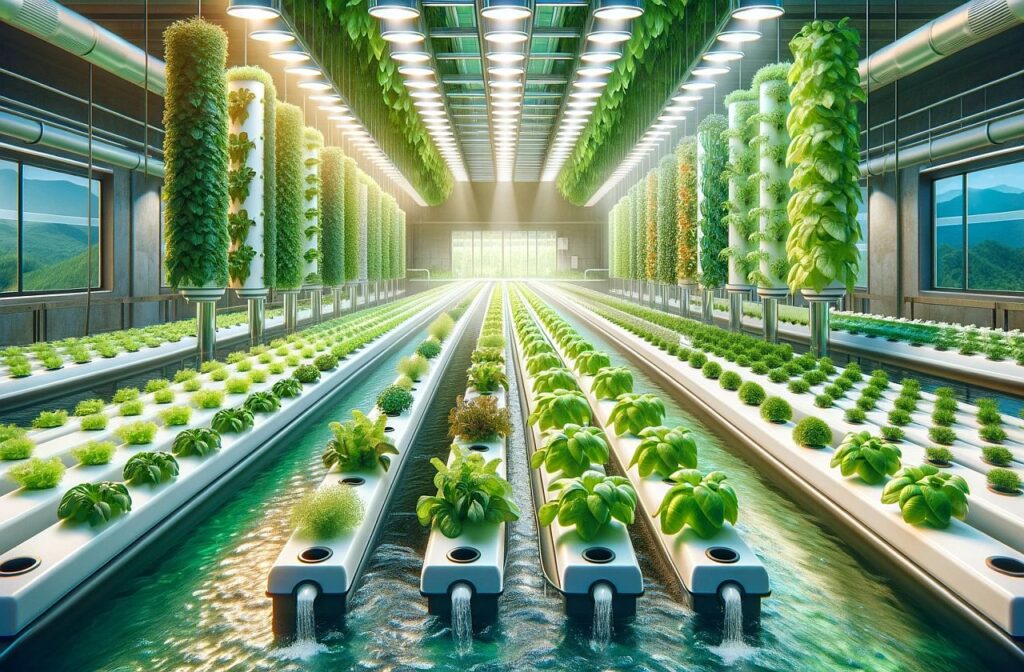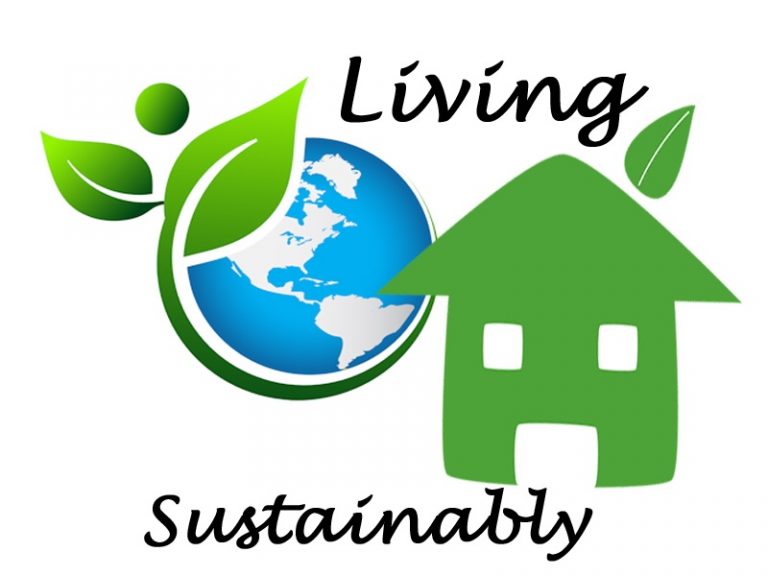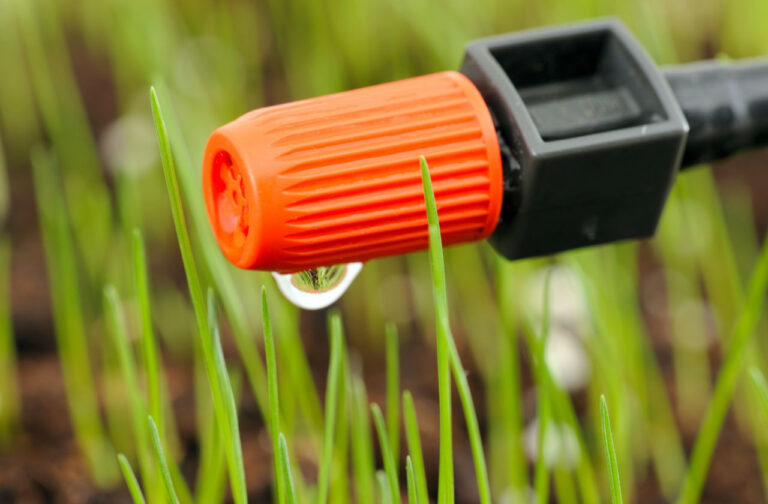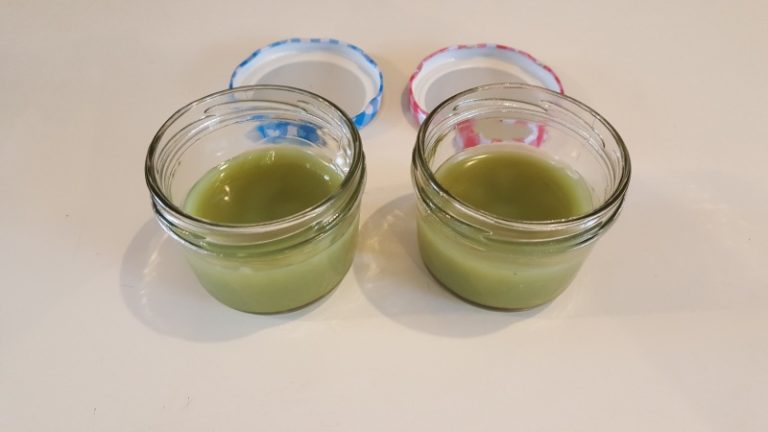Is Hydroponics Organic?
I get commissions for purchases made through links in this post. View our Affiliate Disclaimer.
Hydroponics, a method of growing plants without soil, has gained popularity in recent years as a sustainable and efficient alternative to traditional agriculture. However, as the organic food movement continues to grow, there is some debate over whether or not it is considered organic. Is hydroponics organic as a growing method? Is hydroponically-grown produce truly organic?
In this article, we will explore the definition of organic growing and whether or not hydroponics meets the criteria.
Is Hydroponic Growing Organic?

There is much debate in agricultural circles surrounding the topic of hydroponic growing and organic farming. Some people argue that hydroponic growing is not organic because it does not use soil.
Others argue that hydroponic growing is organic because it uses natural nutrients and water. So, what is the truth? Is hydroponic growing organic?
The answer to this question is not a simple yes or no. The United States Department of Agriculture (USDA) has not yet determined whether or not hydroponic growing is organic.
The National Organic Standards Board (NOSB), which makes recommendations to the USDA about what should be considered organic, has also not yet decided about hydroponics.
That said, there are members of the NOSB who believe that hydroponic growing can be considered organic.
They point to the fact that hydroponics uses natural nutrients and water and does not rely on synthetic pesticides or herbicides. They also argue that hydroponics can be done without the use of soil, which is one of the main requirements for organic farming.
Ultimately, whether or not you consider hydroponic growing to be organic is up to you. The USDA and NOSB have not yet made a determination about hydroponics, so there is no official definition.
Organic Vs. Hydroponics
When it comes to organic vs. hydroponics, there is a lot of debate. Some people argue that hydroponics is not organic because it does not use soil. Others argue that hydroponics is organic because it uses natural nutrients and does not rely on chemical fertilizers.
So, what’s the verdict? Is hydroponics organic?
The answer essentiually comes down to your definition of “organic.” If you define “organic” as meaning that no synthetic chemicals are used, then hydroponics is not organic.
However, if you define “organic” as meaning that the method of cultivation does not rely on soil, then hydroponics can be considered organic.
What Are The Benefits Of Organic Growing?
Organic growing is an excellent way to produce healthy food. The benefits of organic growing include:
- No toxic chemicals are used in organic production, so there is no risk of exposure to harmful pesticides or other chemicals.
- Organic methods improve the quality of the soil, which leads to healthier plants.
- Organic growing practices help to preserve water resources and promote sustainable agriculture.
- Organic foods are generally more nutritious than conventionally-grown foods.
- Buying organic supports farmers who are using environmentally-friendly methods of production.
Can Hydroponics Be Certified Organic?

The debate over whether hydroponics can be certified organic has been going on for years, with no clear consensus. The National Organic Standards Board (NOSB) has discussed the issue several times but has yet to make a decision.
Some argue that hydroponics doesn’t meet the definition of organic agriculture, which requires soil. Others argue that hydroponics can be certified organic as long as the water and nutrients used are organic.
There are pros and cons to the opposing sides of the organic argument. On one hand, hydroponics can be more efficient and environmentally friendly than traditional agriculture since it uses less water and doesn’t require pesticides or herbicides.
On the other hand, traditional farmers argue that hydroponics is not truly organic because it doesn’t always rely on natural resources such as sunshine or natural light.
At this point, there is no clear answer as to whether hydroponics can be certified organic. The NOSB will continue to discuss the issue and may eventually come to a decision. In the meantime, many farmers are choosing to grow organic hydroponic crops without certification.
How To Grow Organically Using Hydroponics
If you’re looking to grow healthy, nutritious, organic vegetables, hydroponics is a great way to start, even though it is not officially considered organic. With hydroponics, you can grow plants without soil, using only water and nutrient solution.
It may seem like cheating, but hydroponics is actually a great way to grow plants organically. Because you’re not using soil, there’s no risk of contamination from pesticides or other chemicals.
Plus, you can control the pH and nutrient levels of your water exactly, so your plants get exactly what they need to thrive.
If you’re interested in growing with hydroponics, there are a few things you’ll need. First, you’ll need a growing medium, which can be anything from gravel to perlite to Rockwool, or coconut coir.
You’ll also need a nutrient solution formulated for hydroponics and a way to deliver the solution to your plants (either with a drip system or by hand).
Finally, you’ll need a growing chamber – this can be as simple as a plastic storage container with some holes drilled in the top for your plants.
With the right setup, hydroponics is a great way to grow healthy organic plants.
Best Organic Growing Medium For Hydroponics
There are several different types of growing mediums for hydroponic systems, but not all of them are considered to be organic. So, what is the best organic growing medium for hydroponics?
The answer to this question depends on a few factors, including what type of plants you are growing and your personal definition of “organic.”
For some people, using an organic growing medium simply means avoiding synthetic materials like plastic or Styrofoam. Others might want to only use naturally occurring materials, like sand, gravel, or perlite.
No matter what your definition of organic is, a few organic growing mediums are commonly used in hydroponics.
These include coco coir, vermiculite, and peat moss. Each of these growing mediums has its own advantages and disadvantages, so it’s important to choose a growing medium that suits your needs and hydroponic system.
Coco coir is made from the fiber of coconut husks and is a popular choice for hydroponic growers. It is durable and does a good job of holding onto moisture, making it ideal for plants that require a lot of water. Coco coir
Best Organic Hydroponics Nutrients
Organic hydroponics is a method of growing plants in a water-based nutrient solution without the use of soil as a growing medium. This type of gardening is becoming increasingly popular due to its many benefits, including the ability to grow plants in a more controlled environment, using less water, and reducing the risk of soil-borne diseases.
When it comes to organic nutrients, there are a few things to keep in mind when choosing the best option for your hydroponic system.
First, you must ensure the nutrients are completely water soluble so the plants can easily absorb them. Second, you must choose an organic fertilizer that is specifically designed for hydroponic gardens.
And finally, must ensure that the organic fertilizer you choose is high in nitrogen, phosphorus, and potassium – these are the three essential nutrients that plants need for healthy growth.
To ensure your nutrients are organic, you must select nutrients derived from natural sources rather than those produced from compounds derived from synthetic processes. In the traditional sense, organic nutrients imply a complex micro-environment in the soil that makes nutrients available to the plants in a form they can use. Organic hydroponic nutrients generally incorporate these processes to produce nutrients that are as natural as possible.
Some commercial organic hydroponics that we can recommend are as follows:
- Microbe Life Hydroponics. The hydroponic nutrients from Midrobe Life Hydroponics are made using organic materials.
- General Hydroponics. This company has been producing hydroponic nutrients for decades and is a trusted name in the industry. General Hydroponics nutrients are proven to be a great choice for hydroponic growers.
- CZ Garden. CZ Garden is another great option for organic hydroponic nutrients.
The best way to ensure your hydroponic nutrients are organic is to make your own, but that is a topic for another article.
Is Hydroponics Environmentally Friendly?

Some argue that hydroponics is more sustainable and environmentally friendly than traditional soil-based gardening. Here are some of the reasons why:
- Less water is used in hydroponics since the roots are constantly being moistened with a nutrient solution instead of relying on rainfall. This can help to conserve water in areas where water resources are scarce.
- There is no need for pesticides or herbicides in a hydroponic system since the plants are grown in a controlled environment. This can reduce the amount of harmful chemicals that leach into the soil and groundwater.
- Hydroponic systems can be set up almost anywhere, even in urban areas where space is limited. This gives more people access to fresh, locally grown produce.
- Hydroponically grown fruits and vegetables often taste better since they are grown in ideal conditions and ripen more slowly than those grown in traditional soil gardens.
- Since hydroponics doesn’t rely on soil, it can be used to grow crops in areas where the soil is contaminated or unsuitable for
Hydroponics is a method of agriculture where plants are grown in a water-based solution without soil. Because hydroponics doesn’t rely on soil, it can be done anywhere – including indoors. This makes it a great gardening option for people who want to grow their own food but don’t have the space available for a traditional garden.
But is hydroponics environmentally friendly? The answer is yes – and no.
On the one hand, hydroponics is more efficient than traditional farming. Because hydroponic plants are grown in a managed and controlled environment, there’s no need for pesticides or herbicides. And because hydroponics uses less water than soil-based agriculture, it’s much more drought-resistant.
On the other hand, hydroponics can be energy intensive. The pumps and lights needed to maintain a hydroponic system can use a lot of electricity. And if those pumps and systems are not properly maintained, they can release harmful chemicals into the air and water.
Overall, though, hydroponics is a more environmentally friendly option than traditional agriculture. If you’re interested in starting your own hydroponic garden, there are many resources available to help you get started.
Conclusion
Hydroponics is a great way to produce organic fruits and vegetables. With hydroponics, you can control the environment in which your plants grow, ensuring that they have access to the right environment and all the nutrients they need to thrive. Additionally, hydroponics systems use less water than traditional methods of gardening, making them more sustainable and environmentally friendly. If you are interested in an easy and efficient way to produce organic, nutritious, and healthy fruits and vegetables at home, consider investing in a hydroponic system.
Get more posts like this
Subscribe to our mailing list and get interesting homesteading and green living info and updates to your email inbox.
Thank you for subscribing.
Something went wrong.







